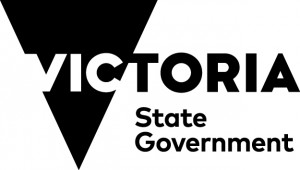INDIVIDUALS & ORGANISATIONS? – THE HIGH PERFORMANCE & PARTICIPATION ARGUMENT FOR GENDER DIVERSITY ON BOARDS
A long standing discussion in affecting change within sporting circles is ‘Participation or High Performance?’ As individuals passionate about the sector, we frequently prioritise one area over the other and cite the long standing arguments of “You can’t have high performance unless you have broad participation” vs. “You need high performers to inspire and encourage participation”.
This discussion does make we wonder how the concept would apply in the workforce or more specifically in regards to gender diversity on boards. Should we continue to focus primarily on developing women so that they can ‘fit’ the current boardroom environment or is it time to increase our focus on developing the boardroom environment so as to enable more individuals to participate?
UN Women state that gender equality “does not mean that women and men will become the same but that women’s and men’s rights, responsibilities and opportunities will not depend on whether they are born male or female”[1].
In recent years a significant amount of the women’s sport work undertaken by Vicsport has been focused on women as individuals. As an organisation we have worked to develop the capacity of women, both employed and volunteers within sport. We have done so by providing opportunities for development to those who may not normally receive these opportunities. The majority of this has been delivered through our flagship programs - the Professional Development & Mentoring Program (PDMP) and Female Administrators Network (FAN). To compliment this we have worked at an organisation level with State Sport Associations (SSAs) through the Good Governance Project.
This week sees the completion of another successful year of the PDMP, with 9 women taking part. 59 women have now undertaken the program since its inception in 2009. Similarly, over 100 women had attended FAN Sessions across Victoria in 2014, taking the total FAN attendees to over 1,100 since the network began in 2008.
Vicsport continues to work with SSAs to develop strong governance practices through the Good Governance Project – a total of 28 organisations since 2009. While it’s encouraging to see so many sports addressing the issue, more needs to be done. Research undertaken by Vicsport at the beginning of the Good Governance Project identified four key barriers to women’s participation at a board level[2]:
- The need for mentoring & encouragement
- Pathways onto governing boards
- Managing the work-life balance
- Lack of confidence
Organisations play the pivotal role of fostering a positive board environment and culture for all current and potential board members. This raises another question – do we focus too heavily on developing the individual and expecting them to ‘fit’ the culture within the board room? It’s like a sport only focusing on their high performance program, while neglecting participation – only to wonder why the number of people participation in the sport is declining.
Gender diversity on boards will not be adequately addressed by purely focusing on the individual. Nor will it improve if we only focus on the organisation. A strategic approach which addresses both areas is required if organisations and sport as a broader industry is to flourish into the future. There are plenty of highly qualified women who are ready and willing to step up to a board position. Now is the time for organisations to develop and change to ensure that once on board, women will want to stay. Is your organisation on board?
[1] http://www.un.org/womenwatch/osagi/conceptsandefinitions.htm
[2] http://vicsport.asn.au/Womens-Sport/Women-on-Boards/Fact-Sheets/
You may also be interested in...
You can’t afford to ignore cyber risk
The explosion of internet use, apps, electronic data storage and e-marketing is producing a corresponding rise in cyber crime
Lace Up Against Social Violence in June

June 12 - 15 In June this year, anti-violence organisation, Step Back Think, will be running their Lace Up Against Social Violence campaign, which aims to raise awareness around social violence and the consequences that a violent decision made in a split second can have on the wider community
Olympic Precinct Games

Actively engaging the organisations around the Melbourne Park Precinct to promote health and well-being by participating in sport.




















